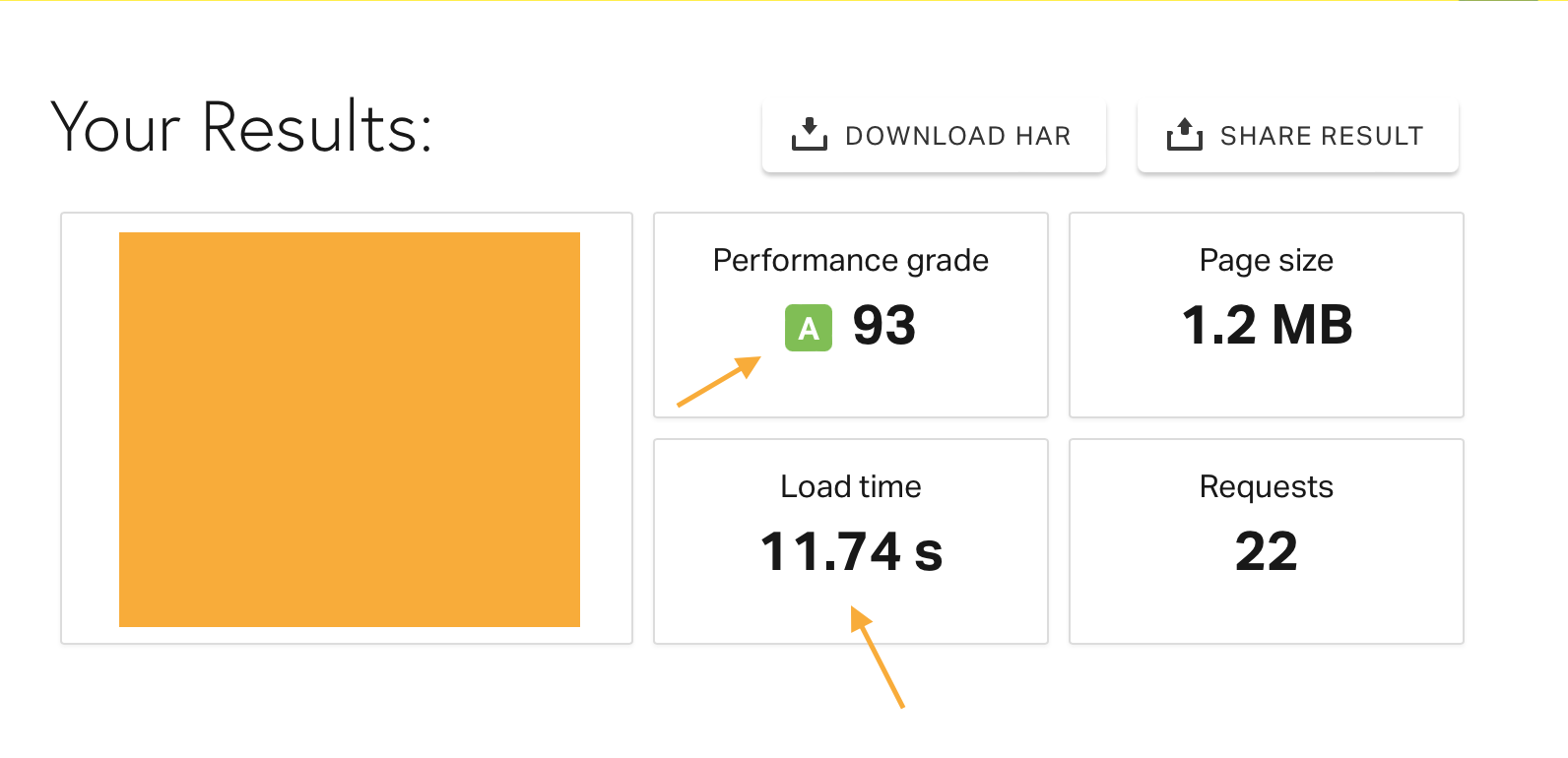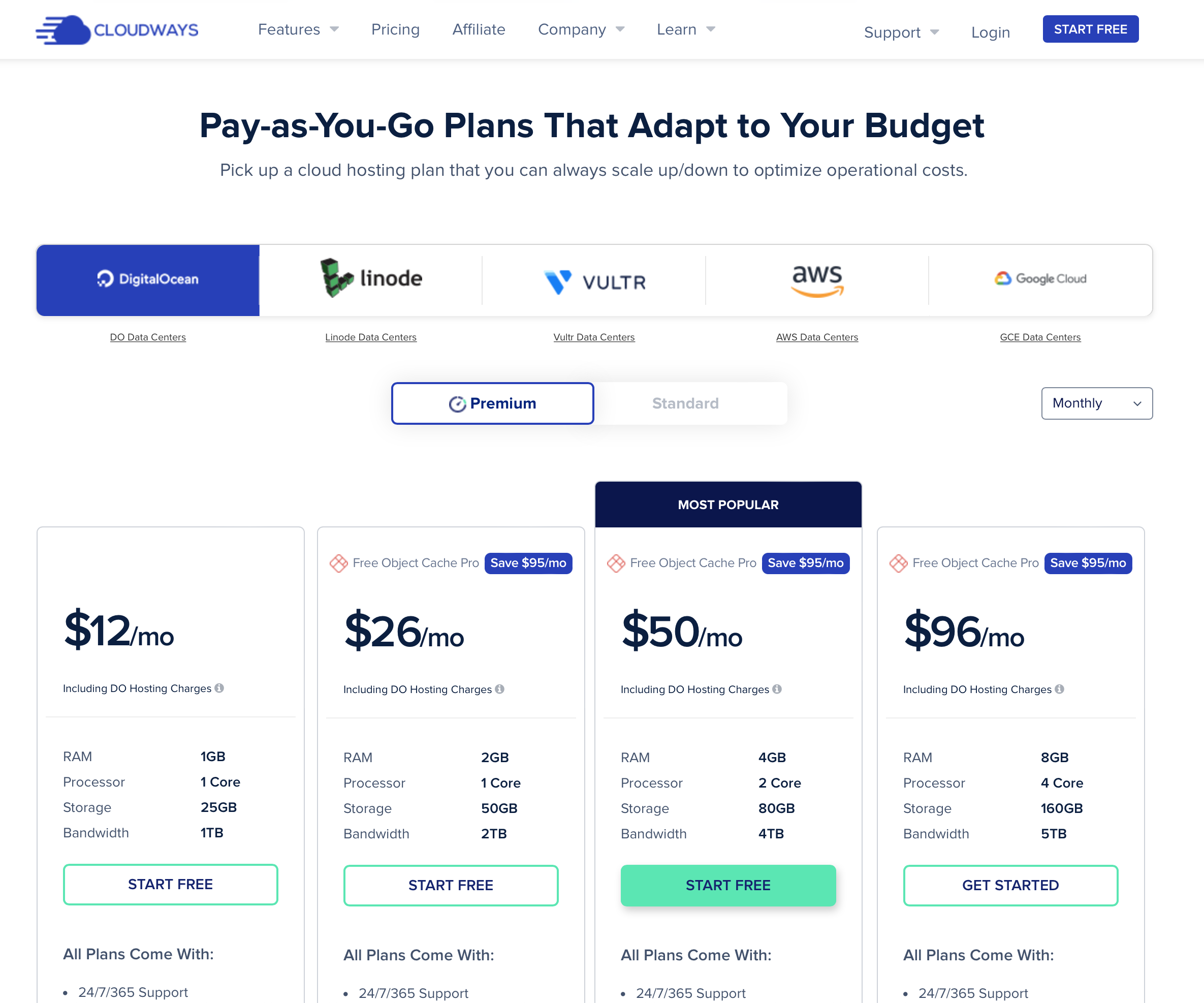If you have the pleasure of being in the official Elementor Facebook group you’ll know there are three things folks on there love to moan about; support, pricing and page speed.
I’ve lost count of the number of posts I’ve seen where people are obsessing at getting to 99/100 on Pingdom, GTMetrix or whatever other tools they can find to benchmark their site.

And time and time again I and others have told them to not stress about it, real-world performance matters far more.
Thankfully for me, and sadly for this website owner, I’ve found the perfect example of this. I won’t share the actual domain, but you can see for yourself just how big a contradiction the score is.
A grade, 93/100 but a load time of 11.74 seconds…

Do page speed scores really matter?
I wish it was as simple as saying no, they really don’t. But the truth is to a degree they do. Page speed is a ranking factor now and if your site is really slow, your rankings will suffer.

Google has made this move because bad page speed means a bad user experience; although page speed is just one of the things that makes a good website.
As I’m sure you’ve realised by now however, Google is a sophisticated beast and doesn’t just take your Pingdom grade as gospel.
So chasing a 99/100 score while ignoring the real-world performance is a textbook way to trip over yourself. It’s far better to get yourself a semi-respectable score with a blazing fast real-world experience.
Of course though, in an ideal world, you want both. But do not fall into the trap so many others have.

Can page cache improve your score?
Are you listening?! I said to stop worrying about scores… Anyway, cache can help your user experience and scores however, it’s another trap that many people fall into.
When you test your real-world experience of your site i.e. actually how slow or fast it feels to use, it’s easy for page cache to trick you into thinking you’ve smashed it out of the park when in fact, your site is slower than stoned Sloth.
This site again has excellent caching, so when after visiting a few pages for the first time the site feels really snappy.
But when first loading the pages it is painfully slow.

My advice is to check your site in private browsing. If you even have time to think ‘this is maybe taking a little too long to load’ then it is and you need to optimise your site further.
How can I optimise my site?
There are a few quick wins when it comes to optimisation. The first is hosting.
Hosting
I know what you’re thinking… eugh I can’t be bothered to buy hosting and migrate my site when it might not even work. But you don’t have to!
With Cloudways you can migrate you site over with their super simple plugin to a trial server without spending a penny.
And even when you do, their plans are crazy cheap for the performance you get…
This is because their servers are actually DigitalOcean servers which alongside Amazon’s AWS is the go-to for developers who really know what their Python from their PHP.
Unlike DO and AWS however, Cloudways gives mere mortals like you and me a user interface we can actually understand rather than having to use commands in a console.
You really have nothing to lose by trying and I genuinely think you’d be amazed at the difference proper hosting can make.

Plugins
Plugins are another quick win that, alongside hosting, can take your slow site from stoned Sloth to super speedy in just a few minutes (say that 10 times fast).
And just like hosting, it’s super easy.
Go through your list of active plugins and clear out anything useless. Then look for something that is doing one fairly basic job.
You’ll often find some plugins tasks can easily be handled by a simple Code Snippet instead of a full-on plugin.
Finally, deactivate one/a few plugins at a time, clear cache and then check out your site’s performance. You’ll often find at least one plugin that is having a huge impact.

Really think about whether the functionality it provides is necessary and if it is, look for a lighter weight alternative or try to optimise it.
Armed with the knowledge of the specific plugin/problem, you can often find much more specific advice than if you were looking more general for optimisation tips.
You can also reach out to that specific developer for advice as well; just don’t be too mean about their slow ass plugin.
To conclude…
Page speed scores are relevant, but they are not the most important thing to focus on.
It’s far more important to optimise for thing the score is trying to measure for you; real-world performance and in turn, user experience.
Do not get hung up on trying to get a 99/100 score, especially to the detriment of your actual user experience.
—–
*This blog post contains affiliate links. If you purchase goods or services using these links I may receive a small commission payment.


